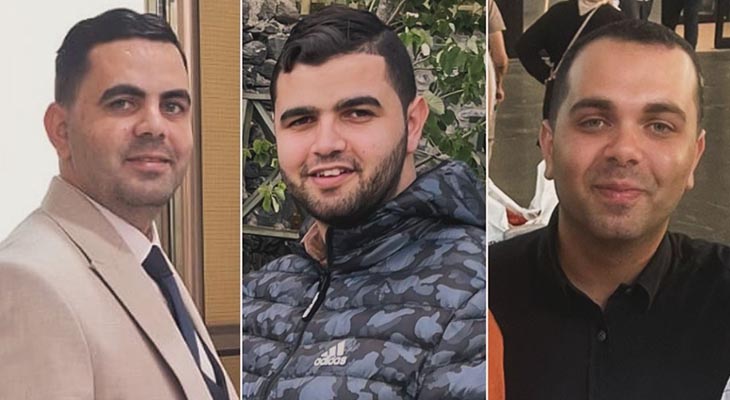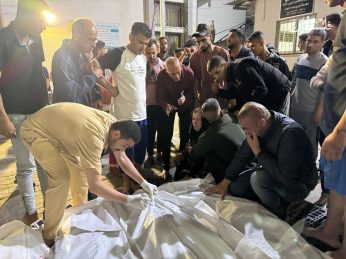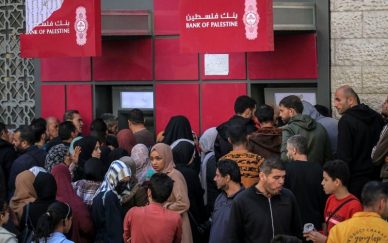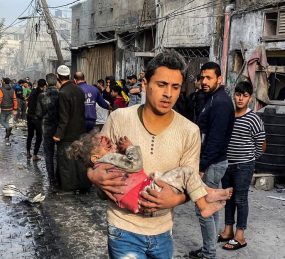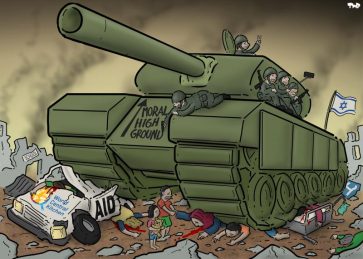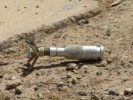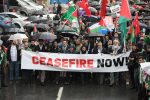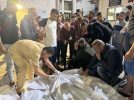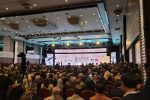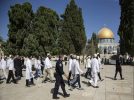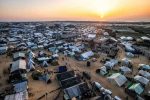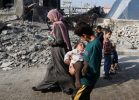GAZA, (PIC)
The Israeli assassination crime against the sons of the political bureau chief of Hamas, Ismail Haneyya, and some of his grandchildren, resonated widely.
Haneyya commented on the news of his three sons’ and grandchildren’s martyrdom, saying, “I thank Allah for the honor bestowed upon us by the martyrdom of my three sons and some of the grandchildren. With this pain and blood, we create hopes, future, and freedom for our people, our cause, and our nation.”
They did not leave the camp
He added, “My martyr sons achieved the honor of the time, place, and ending. My sons remained with our people in the Gaza Strip and did not leave. Nearly 60 members of my family rose as martyrs, like all the sons of the Palestinian people, there is no difference between them.”
Commenting on the news of Haneyya’ sons’ martyrdom, Palestinian writer Lama Khater said, “They not only sacrifice their lives for the sake of Allah, but also sacrifice their sons and the core of their hearts. This is the case with most leaders of the first line… May Allah have mercy on the sons and grandchildren of the Movement’s leader, Abu al-Abd Haneyya, who were martyred in an Israeli criminal raid… And strengthen their parents’ hearts and endure their patience and console them… We belong to Allah and to Him we shall return.”
Writer Mahmoud al-Rantisi believes that “the truth became clear today with the martyrdom of Ismail Haneyya’s sons in the Shati (refugee) Camp among their people … while Israeli media and some Arab media, controlled by Israel, spread fake news that Ismail Haneyya’s sons live in hotels outside Palestine.”
Equal blood
The writer said in an article titled “The Assassination of Haneyya’s Sons… Hamas and the Concept of Equal Blood” that this assassination incident reaffirmed a renewed principle that Hamas has always been known for, which is the principle of equal blood, and the integration of its leaders and sons with the Palestinian people, and the Movement has proven this during its struggle path.
The writer continued, “Hamas Movement is characterized by the practical application of the concept of equal blood, and it almost shines as a bright case even internationally, with this large number of sacrifices, reaching perhaps hundreds of its leaders from the first line and their sons, without deviating from this path.”
Deputy head of Hamas, Saleh al-Arouri, who was martyred during the “Al-Aqsa Flood” battle, confirmed these meanings by saying, “We are no different from all our people, we are part of this resistance.”
Al-Rantisi added, “Haneyya’s initial stance showed the emotional steadfastness of the Movement’s leadership in critical times, and the maturity of this leadership and its ability to endure such news, and this is an important indicator to the popular incubator that the leadership does not succumb to blackmail.”
The implications of the assassination
In a related context, the director of the Arabism Center for Research and Strategic Thinking, Ahmed al-Tanani, emphasized that “Haneyya and his family have endured a lot of exaggerations in the past few months, but they dealt with them logically from the perspective that those who lead public affairs are subject to criticism and rivalry.”
He added, “The martyrdom of Haneyya’s sons and grandchildren in the Shati Camp is a clear indication that they refused to leave neither Gaza nor even the destroyed and demolished camp. They suffered with their people and rose as martyrs among the martyrs of the continuous (Israeli) genocide against the Palestinian people.”
He continued, “The steadfastness and resilience demonstrated by Haneyya at the moment of receiving the news, and the cohesive and balanced statement he delivered in his interview with Al Jazeera, reflects genuine belief and firm doctrine.”
He concluded by saying, “At this sensitive historical moment, coinciding with the negotiations for a ceasefire being on the edge … this sacrifice that the occupation sought as punishment will strengthen the cohesion of the resistance negotiators first, as well as add legitimacy to the resistance leadership, established by the blood of their sons with their people.”
The bankruptcy of the Israeli occupation
For his part, the writer and political analyst, Mohammed al-Qiq, said that by assassinating Haneyya’s sons and grandchildren, Israel declared the depletion of the ammunition of rumors, which is its “strategic weapon to tarnish the image of the resistance and its leaders.”
But more importantly, according to al-Qiq, “Israel realized that the repercussions of the assassination are very significant in favor of Haneyya, Hamas, and the resistance in general, and that the assassination event has raised the stocks and credibility of the resistance among the Palestinian and Arab public, as well as supporters of the Palestinian cause, in addition to boosting the leadership of the resistance among the people of the Gaza Strip, who suffer from slaughter, killing, and starvation every day and suffer the same situation as the leadership’s sons.”
He added, “Therefore, the Israeli army and Hebrew media are now attempting to downplay the event and turn it into a tactical targeting within the usual operations by targeting resistance activists, and not attributing it as a direct targeting to them because they are Haneyya’s sons.”

